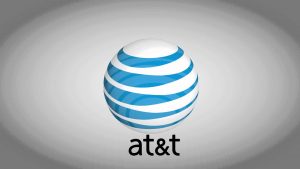 AT&T’s (NYSE:T) planned use of data cap exemptions, a practice known as “zero-rating,” has attracted the attention of the Federal Communications Commission. The practice could be a violation of net neutrality. Net neutrality is the principle that broadband providers should treat all content, sites, and platforms equally in terms of traffic. Some companies have attempted to sidestep those rules with the zero-rating plans.
AT&T’s (NYSE:T) planned use of data cap exemptions, a practice known as “zero-rating,” has attracted the attention of the Federal Communications Commission. The practice could be a violation of net neutrality. Net neutrality is the principle that broadband providers should treat all content, sites, and platforms equally in terms of traffic. Some companies have attempted to sidestep those rules with the zero-rating plans.
Since the net neutrality rules passed in 2015, zero-rating has been a big gray area. The FCC currently has no hard rules in place regarding the practice. The FCC says it judges each instance of zero-rating on a case-by-case basis.
In November, the FCC said it had “serious concerns” over AT&T’s use of zero-rating with its new DirecTV Now streaming TV service. The practice allowed users of AT&T’s mobile service to stream over mobile data without it counting against their data caps. Jon Wilkins, the FCC’s wireless and telecoms chief, says “these practices inhibit competition, harm consumers, and interfere with the ‘virtuous cycle’ needed to assure the continuing benefits of the Open Internet.”
There are concerns that zero-rating allows the company to leverage its position as a network provider for potential profit. To offer zero-rated service to someone who streams 10 minutes of video over LTE data per day, a third-party video service would have to pay AT&T $16 per month. For someone who streams LTE video for 30 minutes per day, the rate would be $47 per month. Meanwhile, DirecTV Now starts at $35 per month.
The agency has requested that AT&T issue a response by December 15. An AT&T spokesperson said in a statement, “Once again, we will provide the FCC with additional information on why the government should not take away a service that saves consumers money.”
The agency has also sent a letter of concern to wireless giant Verizon. Verizon has a “FreeBee Data 360” sponsored data program, which functions in much the same way as AT&T’s plan. Verizon’s own video apps, specifically Go90, get the same benefit at no added cost.
Verizon has also been asked to respond to the FCC by December 15. A Verizon spokesperson said in a statement, “We will review and respond to the inquiry as requested.” Rival carrier T-Mobile does not make companies pay to be zero-rated.
